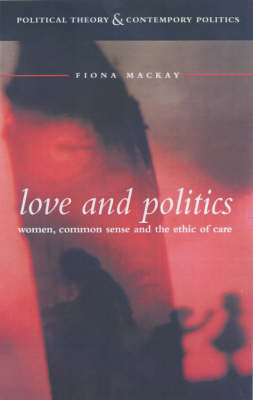Political Theory & Contemporary Politics S.
1 total work
Although there is widespread political and public concern at the under representation of women in politics, and strong support for their increased recruitment, progress towards political equality is still slow. Fiona Mackay explores the reasons for this, using insights from recent feminist theory on the "ethic of care." Feminists have been divided as to whether the "ethic of care" has essentialist underpinnings which lead to a "dangerous politics", celebratory of women's traditional self-sacrifice and liable to make women responsible for care within the public sector as well as the domestic sphere; or whether it can be used to tranform values and practice in the public and political sphere. However their discussions have seldom been related to women's experience of political life. Using empirical case-study materials, including her own interviews with female politicians, Mackay examines "care" as both a political practice and a political idea, using it to explain the current situation with regard to women's represenation and to offer a prescription and resource for change. Such an examination has repercussions for the entire political sphere, she argues.
It offers important pointers for political change, not only that women may fully participate, but so that politics may fully reflect the needs and interests of the whole community.
It offers important pointers for political change, not only that women may fully participate, but so that politics may fully reflect the needs and interests of the whole community.
